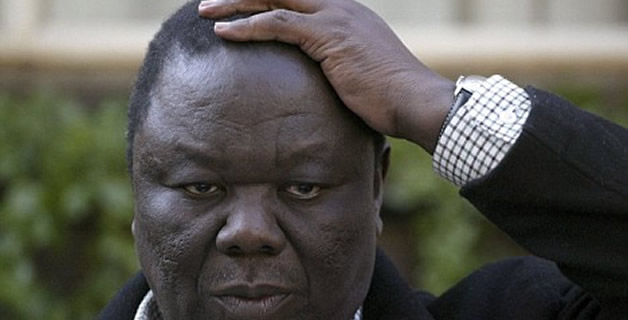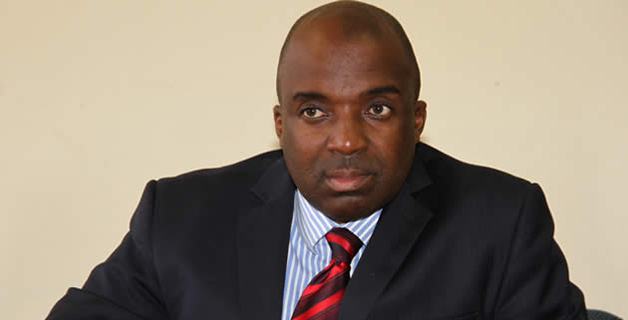![The late Dr Eric Bloch]()
The late Dr Eric Bloch
Joram Nyathi Group Political Editor
THE late Dr Eric Bloch was more than just an accountant. He had diverse talents, very versatile and mixed with people in both government and the private sector with equal ease. He was for a long time chairman of the Institute of Chartered Accountants of Zimbabwe, was a member of the Advisory Board which advised former Reserve Bank governor Gideon Gono and later also became a board member of Homelink, an institution set up to encourage Zimbabweans abroad to invest at home.
Dr Bloch served in the boards of many companies in the country, forcing him to fly to Harare almost every week from his beloved city of Queens and Kings.
At one point there were rumours that he sat on the boards of 50 companies.
We never got to find out the truth.
Occasionally he would make a courtesy appearance at the offices of the Zimbabwe Independent to speak briefly to Trevor Ncube, especially when he was still editor, and drop off his contribution for the week.
I got to know Eric Bloch personally from the newsroom, first as a columnist for the Financial Gazette, and later for the Zimbabwe Independent from May 1996 to his last instalment two weeks ago, almost a week before his shock death on September 20, 2014. He always wore a genuinely warm smile.
Whether one agreed or disagreed with Bloch’s expressed views, one thing cannot be taken away from him: his greatest virtue for any editor was that he was consistent, he was punctual, he was dependable, whether he was in or outside the country.
One rarely needed to make a follow up on his column. If it appeared late, there must be a glitch in the system and his secretary always had a way around it.
A matter of style
Eric Bloch wrote in long sentences, very long at times. You needed to get used to him. Then he used this old style of construction which left one confused. I called it Chaucerian. At first I tried to rewrite his articles in what I thought was modern English. It was useless. I was not going to rewrite the whole article every week. In any event, I quickly realised that I wasn’t Eric Bloch. That was his identity. Readers got to like him that way.
His enduring virtue for me was that, unlike most commentators, he made a clear distinction between issues and people. It is said to maintain a semblance of balance in an argument, you have to be hard on the issues but soft on people. The point of an argument should be to unravel the issue and enlighten people than to embarrass those with whom you disagree. In our over-politicised environment, few people are able to make that distinction, hence the ease with which all views quickly assume a political party name-tag.
Bloch tried as much as possible to be balanced, fair and objective about the issue at hand. He was conscientious. For all his strident opposition to the way the land reform was executed, and what he felt were the injustices of black economic empowerment and indigenisation policies, Bloch did not sink to the level of the embittered, “crush and burn” Cross, nor would he have gloated at having Zimbabwe’s economy “scream” just to be rid of Mugabe.
He loved the city of Bulawayo to the point of being sentimental about its fortunes. It was his home and wanted to see it flourish. I was reminded of this fact when President Mugabe last week declared that Bulawayo would not be allowed to die. He said that was the reason he had personally insisted that the 5th regional youth games scheduled for December this year be staged in Bulawayo.
Bloch was passionate about the state of Bulawayo’s industries, starting with perennial water shortages to the time when sanctions began to bite and companies were disgorging workers on to the streets in their thousands. Many other companies opted to relocate to Harare because of the water crisis. By 2012 about 90 companies had shut down and 20,000 people out of employment.
He was there to witness the precipitous buckling of the country’s industrial hub, eminently epitomised by the collapse of the National Railways of Zimbabwe. He watched in agony as smoke slowly vanished koNtuthuziyathunqa (Ndebele common parlance referring to Bulawayo’s smoking industrial chimneys in its heyday), leaving an empty blue firmament.
He was most articulate about the parlous state of affairs in Bulawayo because he saw the situation with more than a just keen eye. His accounting firm, HE Bloch and Company, was one of the biggest such firms in the city. That means he had access to the books of many other companies and knew what was going on. Through his board memberships, he got tales of woe in their incipiency.
He insisted that Bulawayo should not be allowed to die, without being overtly political. He was one of the people who raised his voice when a disturbing canard circulated that there were plans to move the Zimbabwe International Trade Fair venue from Bulawayo to Harare.
He used his Eric Bloch Column to speak for Bulawayo business in particular but also its residents in general. He was bitter about the $40 million pledged by government for Dimaf in 2011, which he considered paltry. In his calculation, Bulawayo industries alone needed an injection of $2 billion to recover. The people loved him, but for reasons best known to himself, he shunned the cheap allure of political fame.
Bloch and Esap
Bloch strongly believed in the efficacy of a free market economy. It was therefore no coincidence that he was in love with Thatcherism (private companies versus a small role for the state in the economy, living individuals to mind their own business, with the British Iron Lady famously stating in 1987; “There is no such thing as society. There are individual men and women and there are families.”) and became a devout exponent of the IMF’s austerity measures once Zimbabwe adopted its structural adjustment programme in 1992.
He believed most state enterprises and parastatals should be privatised to weed out corruption and enhance operational efficiency, and hence cut costs to the Fiscus. With the then finance minister Dr Bernard Chidzero, they were so passionate in their conviction about the efficacy of Esap they left much of the nation in no doubt that at the end of their long toil and massive job losses and belt-tightening, there could be no other destination but the pearl gates of Shangri-la. In their scheme of things, government was the villain of the piece because it was not retrenching employees fast enough for the fruits of Esap to yield their honey.
Land revolution
Soon Esap’s depredations were so unbearable that it was abandoned. Zimbabwe was neck-deep in arrears, thousands of former employees were roaming the streets as the lumpen proletariat ready to the clutch at the straws offered by Tsvangirai and his MDC. But most veterans of the liberation struggle started agitating for land, culminating in the Donors’ Conference of 1998 and Clare Short’s insolent letter in which Tony Blair’s Labour Government rejected obligations made by his predecessors regarding funding of the land reform process.
The rest is known. But Bloch was bitter. Like most whites, Bloch insisted on a willing seller, willing buyer approach. Jambanja was wrong and illegal. Those who lost their farms should get immediate compensation. Property rights were being violated.
Like the rest of white commercial farmers, they seemed to pay only lip-service in their declared support for the land reform but for the methodology. Worse still for them, they could not fathom the possibility of a post-reconciliation land revolution, a reconciliation which had turned Mugabe into a darling because it implied security of the economic status quo ante.
No doubt he died a disillusioned man, believing that a great injustice had been committed against whites. This is a view shared by many whites and some educated blacks for whom the liberation war meant no more than having a one man, one vote, and leaving the colonial land tenure system intact because whites now had title to the farms which indigenous blacks never had. Indigenisation and economic empowerment only served to compound an irredeemable evil.
Yet the reflexive recourse by former white commercial farmers born here to mainly European courts to resolve local grievances betrays their status in and attitude towards Africa in general and Zimbabwe in particular: that this is a continent or country where fortune can be made but home is Europe.
Fare thee well Dr Eric Bloch Esq., a man who rarely, if ever, wrote a column to nourish a personal jaundice.








